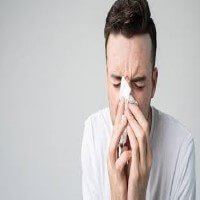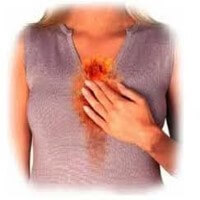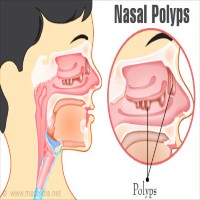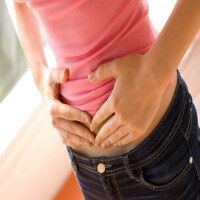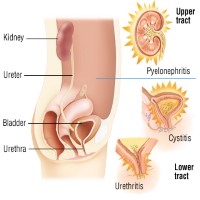Depression: Ayurvedic Treatment for Depression and its Signs, Symptoms, and Causes
Feeling trapped in depression’s dark cloud?
Discover Ayurveda’s healing for a brighter future! Unlock the ancient wisdom of Ayurvedic treatment for depression. Say goodbye to the gloom and hello to holistic healing. Take charge of your mental well-being and embark on a transformative journey with us!
Depression has become a common clinical condition in modern times. Almost 13% of current humanity is facing some kind of mental health issue, and depression is one of the leading ones under mental health conditions.
Depression negatively and severely impacts almost every domain of our life including physical, social, and financial, and is not limited to mental well-being only. Before making a diagnosis of depression, the clinician must rule out the other medical conditions of thyroid functioning disorders, tumours, or vitamin deficiency, which mimic the symptoms of depression, so it becomes imperative to rule out any underlying medical causes.
Also, it has been seen widely that if depression causes you to lack sound sleep or insomnia for some days, it can elevate sugar levels in your blood and eventually leads to diabetes. This fact will you put in awe that a week’s sleep deprivation can put you at risk of pre-diabetic. Read the science behind type 2 diabetes and sleep here.
Types of Depressive Disorders
- Persistent depressive disorder or dysthymia is a condition where a patient complains about a depressive mood for more than two years.
- Perinatal depression is observed in some women after giving birth, women with perinatal depression experience full-blown major depression during pregnancy or after delivery (postpartum depression). Perinatal depression makes it quite difficult for new mothers to complete daily care activities.
- Psychotic depression is accompanied by severe depression and some form of psychosis. This condition has symptoms of delusions of guilt, poverty, or illness.
Signs & Symptoms
Following are some signs and symptoms that can help ascertain if a person is suffering from depression. The state of the condition varies from person to person and to the time when one starts experiencing some of these signs and symptoms. Hence, it becomes imperative to start seeking support and treatment as earliest as possible because the condition of depression soon starts overpowering the other domains of your life like physical, sexual, social, and economic.
- In a state of hopelessness and low on spirit
- Persistent sadness, self-loathing
- Loss of interest in activities once enjoyed
- The feeling of guilt, worthlessness, self-doubt
- Irritability, self-confinement.
- Decreased energy, increased fatigue
- Extreme thoughts such as death, suicidal tendency or suicidal attempts.
- Unknown body pain
- Irregular appetite- weight gain or weight loss unrelated to diet
- Difficulty sleeping or excessive sleeping
- Difficulty concentrating, thinking and taking decisions
- Finding no purpose in life
- Inability to sit quietly, taking too much time or pauses in speech, slow body movements.
- Poor and irregular bowel habits
- Obsessive Compulsion for one thing/task.
Causes and Risk Factors
1. Personality traits
Certain personality traits such as low self-esteem, being too dependent, self-critical or pessimistic, admire to stay alone for too long are some of the traits found in people having depression.
2. Traumatic events
Traumatic or stressful events, such as physical or sexual abuse, the death or loss of a loved one, a difficult relationship, or some financial problems can put people more at risk of having depression. Any trauma in childhood can put children more at risk of depression in their youth.
3. Family history
Patients with depression usually have a family history of depression or blood relatives with a history of bipolar disorder, alcoholism or some history of the suicidal episode in the family. If one twin has depression, the chances that the other too would have depression at some point in life becomes as high as 70 percent.
4. Medical condition
The history of some chronic illnesses like cancer, chronic pain, and heart disease also put patients at risk of depression, it usually happens more in elderly patients.
5. Addictions
The abuse of alcohol, narcotics, and the habit of other illegal drugs like marijuana, and cocaine have also been found to cause depression.
Self Care Tips
- It is advisable to keep a track of one’s pattern of thoughts and write them down, it can help to figure out which thoughts make one feel sad.
- Develop the habits of reading, running, and relaxing, reading self-help books has been found to help individuals overcome negative thoughts, running releases the hormone adrenaline in the body that helps in reviving body energy and combat depression, do take some time out of fixed schedule and spend time in relaxing.
- Don’t create any guilt because of some old deeds; it is okay to be okay.
- Eat healthy food and stay active as it can make a difference in energy levels while stimulating endorphins that help one to feel better.
- Find out the things that make you happy and take time out to do them.
- Developing new skills can lift the mood easily.
- To stay closer to nature, the researchers suggest that staying in contact with pets, plants, gardens, parks etc. can reduce stress and uplift the mood swiftly.
- Talking to a family member or friend who is a good listener can help to express oneself. This can also help in getting an outsider’s opinion on the thoughts.
- It can be really helpful to talk to people who have gone through similar experiences, learn from their experience and take inspiration from successful stories to combat depression.
- Set small goals, prioritize them in achievable order and don’t burden the brain with too much of work, maintain a healthy balance in personal and professional life.
- Develop a healthy sleep routine; sleep has a huge effect on physical and emotional health.
- Go to bed with a calm mind and stretch the body before sleeping.
- Exercise regularly and maintain a balanced diet. For working people who cannot maintain a regular schedule of gym and exercise, it is good to go for a brisk walk or dance at home.
Side-Effects of Anti-Depressants
Although they have been in use for decades to treat depression, they bring some adverse side effects with them, which can even further deteriorate a patient’s life in so many aspects. Some of the common side effects are given below-
- One of the major side-effects of anti-depressants is that these can lead to sexual problems such as erectile dysfunction, and poor sexual drive or can worsen the already sexual issues.
- Even though anti-depressants help in sleeping, in some cases, they cause trouble in sleeping as their side effects make an individual consume higher dosages that form drug dependence in those cases.
- Some gut-related disorders such as Nausea, Dry mouth, Diarrhea and Constipation are common side-effects observed post-usage of anti-depressants.
- Fatigue, Tremors, Headache, Blurred vision, low energy levels, and Dizziness are also known to have side effects.
Ayurvedic Description of Depression
In Ayurveda, depression is co-related with ‘Avsaad’, which is mostly a Kapha-predominant condition. The two other humors, i.e. Vata and Pitta also go out of balance by the exposure of their aggravating factors. If there is an imbalance of ‘Vata’, there will be dominant symptoms like anxiety, fear, mental instability, and insomnia. The imbalance of ‘Pitta’leads to anger, aggressiveness, suicidal thoughts, and irritability while the imbalance of ‘Kapha’, may lead to lethargy, and a lack of interest in daily activities.
Ayurvedic Treatment of Depression at Aas Ayurveda
Despite being a condition that requires clinical and medical intervention, only a few people try seeking wholesome professional support, which includes specialist consultation, supporting mechanism as peer group association, counseling, and holistic healing therapies such as Shirodhara, workouts (positive and personalized), and meditation. A lack of seeking holistic health facilities leads a patient to seek partial treatment or mostly rely on medicines, which bring adverse effects. The holistic Ayurvedic treatment at Aas Ayurveda aims to reduce and remove anti-depressants from the life of patients. The therapeutic intervention vary from individual but we adopt the following holistic approach for our patients-
- A complete counseling session is done for the patients to hear them in detail and to understand their specific problems. Since every individual has individual needs, we plan their regimen and health needs.
- After assessing the needs during the counseling sessions, we use the best Panchkarma treatment modalities that include Shiropichu, Shirodhara( medicated pouring of oil on forehead), whole body Snehan (massage) and Swedan (steam), Nasya (medicated oil pouring in nostrils and pressing of acupressure points to release negative energy). These treatment procedures are aimed at the optimum and well functioning of HPA (The Hypothalamus-Pituitary-Adrenal Axis) to lower the levels of cortisol in the body (stress hormone) and help patients relax more happily which is seldom achieved by synthetic pills.
- Other modalities like Vaman (medicated emesis) and Virechan(medicated purgation) too are used for complete detox and physical-mind healing.
- Ayurvedic psychotherapy (Satwawajaya) plays an important role along with these therapies which help a patient and family to understand and adopt certain behaviors that pace up the recovery process and make an amicable environment in the family.
- Post panchakarma session, the patient is put on Ayurveda medicines which are devoid of any side effects and help the patients regain vitality, vigour, and zeal to live a confident social life.
The Ayurvedic treatment of depression involves a thorough understanding of the patients’ unique constitution (Prakarti) and state of imbalance or Vikriti of doshas. The Ayurveda physicians at Aas Ayurveda are empath listeners and experts in reversing the condition of depression and have helped many patients in living healthy, happy, and depression-free life. The woes of depression can be healed, so, make a small move now and seek holistic health.

